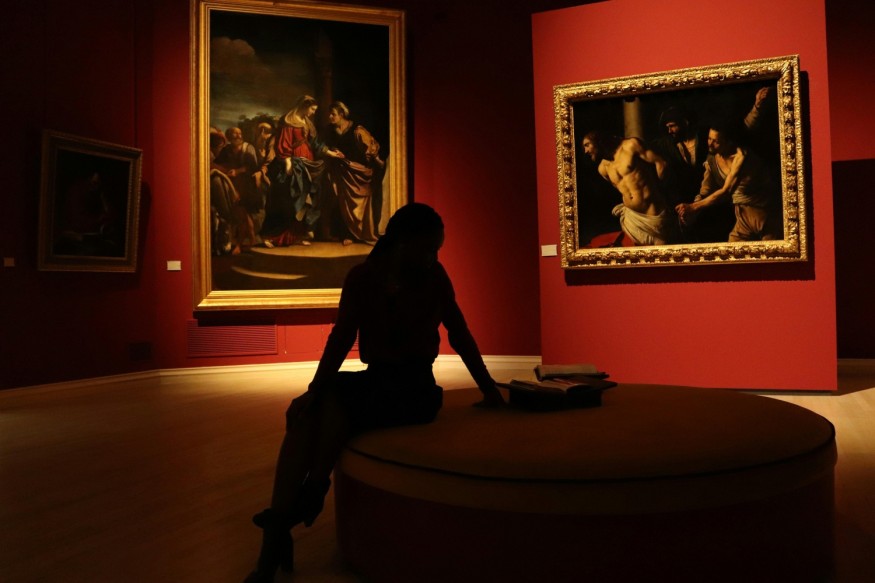Performance Artist Faces Charges After Vandalizing Courbet's 'Origine du Monde' with #MeToo Slogan

Deborah De Robertis, a provocative performance artist known for daring confrontations with art institutions, has been charged with damaging and stealing cultural property. This follows her recent act of tagging Gustav Courbet's renowned painting, L'Origine du Monde, and other artworks with the #MeToo slogan. The charges, announced on Monday by a French prosecutor, also involve two other participants in the act.
Incident at Centre Pompidou-Metz
De Robertis and her accomplices entered the Centre Pompidou-Metz in northern France in early May. They graffitied the glass protecting Courbet's 1886 painting, which vividly depicts a nude female torso. This work, on loan from Paris's Musée d'Orsay for the "Lacan, the exhibition. When art meets psychoanalysis," was just one of several targeted pieces. The show delves into the unconscious theories proposed by French psychoanalyst Jacques Lacan, who once owned the controversial Courbet painting.
Alongside Courbet's piece, works by artists such as Valie Export, Louise Bourgeois, and Rosmarie Trockel were also tagged. A photograph of De Robertis herself, captured during a 2014 performance titled Mirror of Origin, was also marked. In this provocative performance, De Robertis posed nude beneath Courbet's painting. A separate embroidered piece by Annette Messager, titled I Think Therefore I Suck (1991), was reportedly stolen during the incident.
Protest and Performance Art
A video from the scene shows protesters chanting "Me Too" as museum security escorted them off the premises. De Robertis later stated that this was a planned performance piece, You Don't Separate the Woman from the Artist. The title alludes to the contentious debate about whether one can separate an artist's work from one's conduct.
The #MeToo movement, which gained global traction in 2017, brought widespread attention to the pervasive issue of sexual violence against women. It particularly impacted high-profile artists and individuals in the gallery and museum sectors, with numerous accusations of sexual harassment and assault coming to light.
De Robertis' Explanation and Past Controversies
De Robertis explained to AFP that her act at the Centre Pompidou-Metz was to spotlight the "very closed world of contemporary art," which she believes has largely ignored the #MeToo movement. This isn't her first controversial act; she previously made headlines for exposing herself in front of other iconic artworks like édouard Manet's Olympia (1863) and the Mona Lisa.
Public Statement
In a statement on Medium dated May 13, De Robertis defended her actions, declaring, "I violated museums, from the Orsay Museum to the Louvre Museum to the Pompidou Center. I entered them by force, without consent or permission, to claim my place in history." She called out various figures in the art world, accusing them of exploiting vulnerable women artists.
Among those directly named was curator Bernard Marcadé, co-organizer of the exhibition at the Centre Pompidou-Metz. Despite the serious charges, De Robertis remains free but is barred by court order from entering exhibitions in the Moselle region, which spans parts of France and Luxembourg.
This incident underscores the ongoing tensions between radical feminist activism and traditional art institutions. It raises critical questions about the role of protest and performance in challenging the status quo and advocating for systemic change within the art world. As De Robertis faces legal repercussions, her actions continue to spark debate and reflect the enduring power of the #MeToo movement within cultural spheres.
From Digital Models to 3D-Printed Homes: Jaspreet Kaur Lall Explains How the Innovation Changes the Construction Industry

Future Belongs to Green Construction: Sampath Kumar Paspunoori Explains One of the Key Trends in the Construction Industry

Kamala Harris' Campaign Ad Uses Iconic Visuals from Carrie Mae Weems to Connect with Voters

Historic Ancient Roman Ruins in Baalbek Remain Strong After Israeli Air Strikes; Locals Seek Cultural Protection

4 Ways to Honor Departed Loved Ones in Your Home Design













